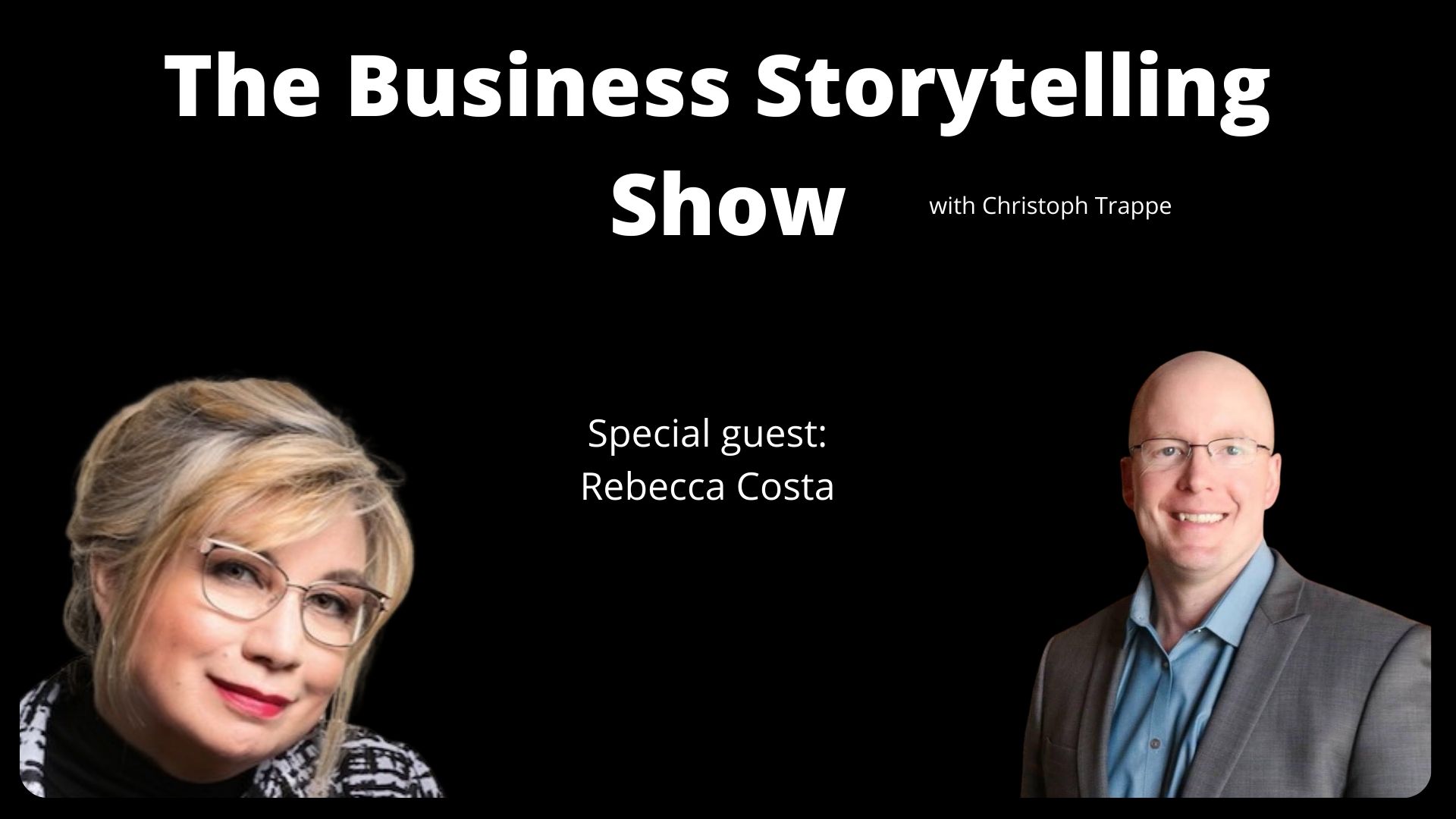Trappe Digital LLC may earn commission from product clicks and purchases. Rest assured, opinions are mine or of the article’s author.
Things are constantly changing. I hope that’s not a debate anymore at this stage, but how can we stay ahead of change and maybe even predict the future of marketing to an extent? Futurist Rebecca Costa joined me on an episode of the Business Storytelling Show to discuss the future of marketing – and anything that affects our lives.
At the core, we have always predicted or tried to predict what will happen in the future.
We predict our boss’ reactions, and the better we know them, the more “data” (knowledge) we have to pull from to base our decision on, the more likely we are to make the correct prediction.
That’s a simple example that probably many can relate to. And predicting the boss becomes easier the more we understand and know them. The more prior examples of behaviors we can draw on, the easier it becomes to predict anything.
In the case of the future of marketing, that can include understanding:
- where to reach consumers
- what messages resonate with them
- where they are in the current funnel
- what their behaviors are and how they are changing
- how organic and paid strategies are evolving
- And more…
Predicting the future in companies
It is good to acknowledge the difference between knowing vs. predicting. Knowing means we absolutely, 100 percent understand what will happen. Predicting means that we base our analysis of a likely outcome on data and maybe intuition at the correct times, which is a topic Sunil Godse discussed with me on the podcast.
How to predict the future
Rebecca said that predicting the future has become more accessible in theory.
“We are getting close to 100 percent,” she said. “There are signs.”
Whether it’s business, politics, or professional sports, there’s data to pull from to understand what the likely outcome could be.
“But you need to have the mindset,” she said.
People have to be willing to pay attention, analysis, and consider.
Why do companies struggle to predict the future?
“You need to have a formalized process, but institutions do resist,” Rebecca said. “That’s because we get more efficient at the things that have made us successful.”
In other words, companies find something that works, and then they stick with it. It’s a bit of a defensive syndrome if you ask me.
- People do innovative and creative things to advance their marketing strategy.
- Once they reach a certain level, they turn into defending what they’ve achieved.
We totally should protect the brand – as much as that’s possible – but it shouldn’t hinder us from understanding where things are going.
The barriers companies face also include not seeing the potential in newer strategies based on what we know about consumers. For example, short-form video has been a thing many brands have had success with on TikTok. So is short-form audio another strategy that a company should try to stay ahead of prospects and consumers? Or how about virtual reality videos?
That doesn’t mean we should do all of these strategies necessarily. But it means we should look at what they can teach us. At a minimum.
How to get started with your future marketing strategy today
As usual, it does start with awareness. It does begin with a partnership that includes a good product with a good market fit. From there, be crystal clear of what’s currently working and what’s not working?
Read next: How being helpful can propel your business forward
Then find the right mix of the short-term and long-term strategy.
For example, I consider paid campaigns short-term. You pay to run ads, content syndication, or other programs, and once you stop paying, they stop. So they are as short or long-term as you have the budget to spend on them.
More longer-term are strategies that have a tail of influence. For example, an integrated content strategy has a shot at being more long-term. People consume content on this blog that I wrote years ago. As a result, some of those articles have a significant readership and can build my profile as a content strategist. The impact isn’t stopping because I ran out of ad spend.
But then also consider what others are currently doing and how to build on that. For example, many B2B and B2C companies are increasingly doing podcasts. I think that’s great and a good strategy, but how do you build on a podcast to rock the future of marketing?
My answer to that is to live stream your podcast. So many are doing podcasts and separately I saw the emergence of livestreaming on all these social channels. But then, there’s still the need for website or email content.
In essence, I’m predicting that the future of marketing will include these channels in an omnichannel approach. And even if the live stream isn’t the most successful channel from the start, it’s a differentiator to the competition that’s “only” doing a podcast for the time being.
Knowing the future is maybe impossible but predicting it is possible when we look at the market, use the data we have and keep our mind open.

